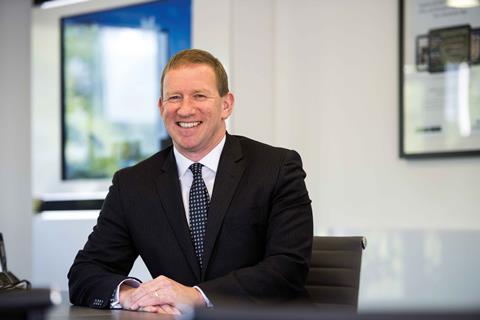Housebuilder hails £5bn revenue but ‘macro-economic uncertainty’ means recent trading suffers
The UK’s biggest housebuilder has seen a slump in pre-tax profit for the year to June after setting aside cash to repair legacy properties, despite revenue topping £5bn for the first time.
Shares in Barratt fell back as it reported a pre-tax profit for 2021/22 of £642m, down 21%, and said that trading in recent weeks had been sharply down on the same period last year.
The firm said private reservations per site per week in the two months to August 28 were at 0.60, well down on the 0.82 recorded this time last year, and below the 0.70 recorded prior to the pandemic.
It said this fall “reflects limited availability of homes for early occupation, given our strong forward order book, as well as heightened macro-economic uncertainty”. The firm said it was currently 55% forward sold for the year, compared with 59% at the same point last year.

Barratt’s revenue rose, however, to £5.27bn, up 9.5%, and chief executive David Thomas hailed a “year of fantastic progress” for the business, with adjusted profit – not taking into account the exceptional items including the huge write downs necessary to pay for building safety works – rising by nearly 15% to a record £1.05bn.
The business topped its pre-pandemic level of completions for the first time, selling 17,908 homes, and said it was on course to increase this to between 18,400 and 18,800 next year “based on current market conditions”.
The firm’s gross margin increased to 24.8%, from 23.2%, and it launched a programme to return £200m of “surplus” cash to shareholders.
Barratt’s statutory profit figures were dented by a £408m write down related to “costs associated with legacy properties” in the year, of which £396m related to the costs necessary to meet the obligations under the cladding pledge agreed with government, under which housebuilders have agreed to fix all legacy properties going back 30 years without recourse to public funds.
>> See also: Barratt boss hits out at Gove’s £3bn levy plan
>> See also: Rees-Mogg and Clarke appointed to key Cabinet roles
The firm said its margin had increased as house price growth had outpaced build cost inflation in the last year, but that build costs were now rising at 9-10%, and it expected them to continue doing so in the year to June 2023, while it predicted house price growth to “moderate”.
Barratt chair John Allan said: “Macro-economic uncertainties remain, most notably around household energy costs and elevated inflationary pressures, changes in interest rates and the consequent impacts on employment, wage growth, house prices and consumer spending and confidence.
“As a business, we also face the prospect of higher taxation, the ongoing challenges around build cost inflation and the withdrawal of Help to Buy, which will close for new reservations at the end of October 2022.”
Shares in Barratt, which is valued at over £4bn, fell just over 1.1% in early trading.




























No comments yet